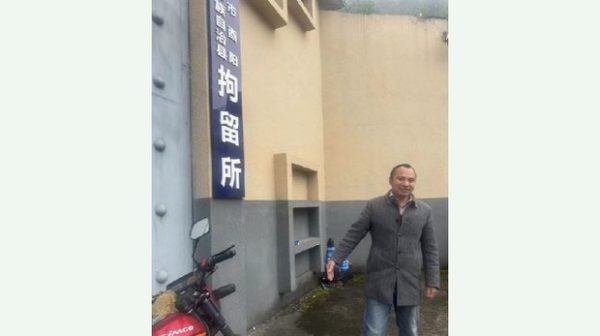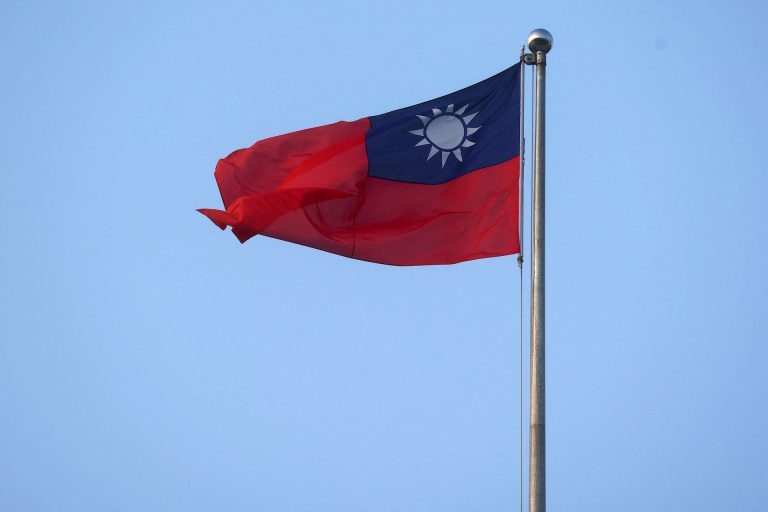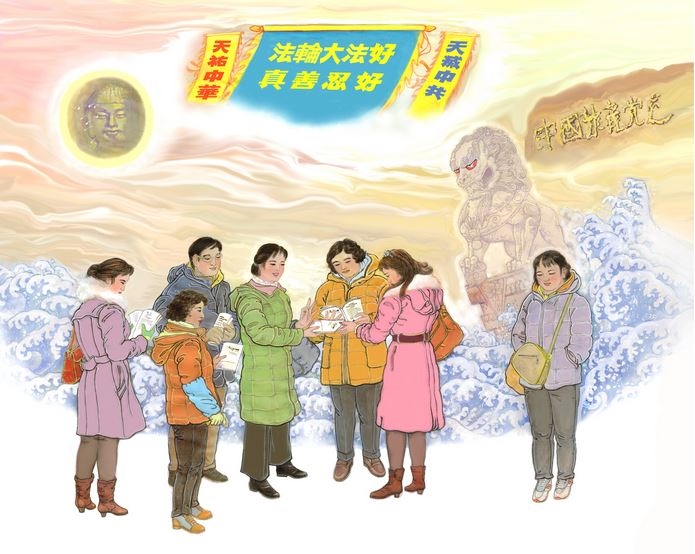A writer and dissident in southwestern China who has a history of run-ins with the communist regime was handed a 15-day detention after he declared his allegiance to the Republic of China (ROC) on Taiwan, as detailed in a recent report by Radio Free Asia.
Known for his protests against government inaction in the face of heavy pollution, Liu Ermu, who hails from the megacity Chongqing, more recently spoke out against the police for improper conduct while handling a workplace dispute.
The police accused Liu of starting a fight, while he said he was defending himself in the altercation that occurred last year. In August, the Xiushan local court in Chongqing municipality threw out his administrative lawsuit against the police, to which he responded that he would publicly announce allegiance to the ROC government.

Liu’s 15-day administrative detention, which police had brought against him in 2021 but halted until recently, was activated on Dec. 30, ahead of the recent general elections in Taiwan held on Jan. 13.
Prior to 1949, the ROC ran all of China, but was defeated on the mainland by the Chinese Communist Party (CCP). Its remaining military forces and government have continued to rule on Taiwan, located about 100 miles from the Chinese coast.
Success
You are now signed up for our newsletter
Success
Check your email to complete sign up
Liu said he declared his support for the ROC because of its democratic freedoms, which he said have been violated in Communist China.
“I felt I was being persecuted in China,” he said in statements translated by RFA. “It felt as if the law was unable to protect me under this government, so I openly pledged my allegiance to the Republic of China government.”
“The territory [claimed by] the Republic of China includes mainland China,” Liu noted, referring to the Taiwan government’s de jure territorial claims.
“Based on my long-term observation of Taiwan, I have a longing for a political system like that in the Republic of China,” Liu said. “One that’s full of freedom, justice and the rule of law.”
According to Liu, the police made many attempts to pressure him not to publicly avow loyalty to the ROC, something he said he would do on Douyin, the Chinese version of TikTok.
- Taiwan Voters Reject CCP’s ‘Reunification’ Agenda in 2024 Presidential Election
- ‘The CCP Regime Will Fall Like the Tyrannical Dynasties of Old’: Chinese Quit the Communist Party
The statehood and national identity of Taiwan are fraught with controversy.
For decades after the communists conquered the mainland in 1949, the Chinese Nationalist Party, or Kuomintang, ruled Taiwan under dictatorial martial law, until a combination of popular unrest and reformist leadership ushered in a transition to democracy.
Today, while Taiwan is officially governed by the same government that once ruled all of China, and carries on many political and cultural traditions that come from the mainland, many residents of Taiwan see themselves as a separate nationality from China.
The winner of the Jan. 13 presidential elections was William Lai Ching-te, whose Democratic Progressive Party (DPP) believes Taiwan should be its own country, rather than a part of China, communist or otherwise.
The CCP rejects both the republican Chinese government, as well as the notion of an independent Taiwan, claiming that the island is a part of its “People’s Republic” and must be “recovered” by military force if necessary.















